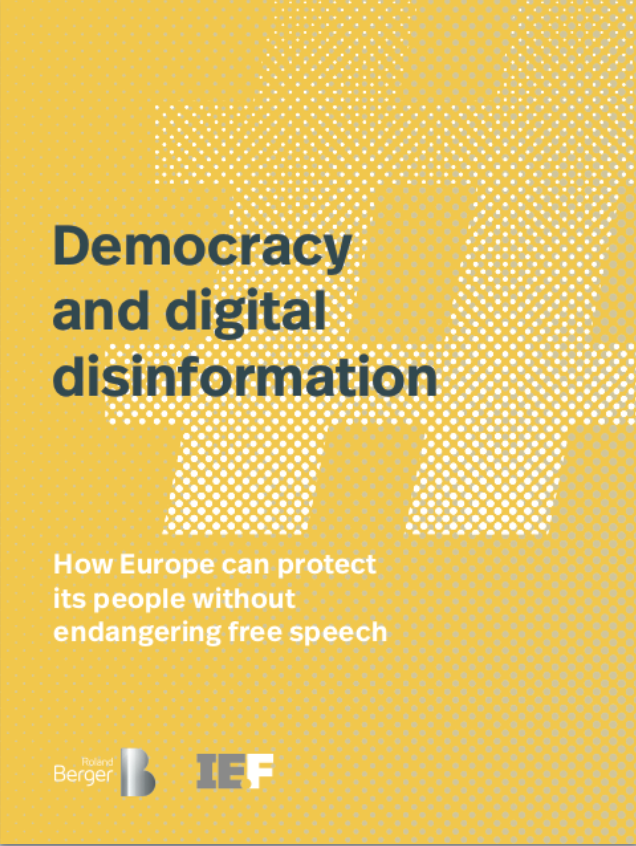Press Release | Democracy and digital disinformation - How Europe can protect its people without endangering free speech
Disinformation on the Internet, especially via social media, is becoming an increasing threat to social cohesion and our Western democracies. In its latest study "Democracy and Digital Disinformation", the Internet Economy Foundation calls for concrete measures to counter this threat with uniform standards and greater transparency.
For many, large digital platforms are no longer perceived as saviours of open societies, but rather as dangerous instruments that can manipulate elections and public opinion. Nevertheless, 73% of Europeans aged 18 to 29 and 68% of Europeans aged 30 to 49 receive their daily news via online channels. Digital platforms such as Facebook or Twitter are increasingly assuming the role of traditional media outlets. However, information can be disseminated via them unfiltered, and the platforms face no liability for spreading disinformation or falsehoods.
There is an increasing resistance against the enormous market power of the big Internet companies Facebook, Google or Twitter and their role as a new form of global mass communication. Politicians on both sides of the Atlantic are looking for answers to this problem. However, the right solutions have not yet been found - because digital platforms are neither classic media nor pure infrastructure providers. It is therefore difficult to find the right boundaries between freedom of the press and liability.
Since its founding in the spring of 2016, the IE.F has been committed to competition and fair conditions in the digital economy. The growing monopolization by a few large platforms is now increasingly affecting the information cycle on the Internet. The study therefore aims to provide the necessary context so that governments, the public and platforms can jointly find solutions to this problem.
The study's key recommendations for action:
- Create consistent criteria on how to deal with fake news
- Raise awareness of online manipulation
- Uniformely regulate political advertising
- Give users (greater) control over the choice of content
- Protect user’s right to anonymity
"To understand how the major US platforms choose their content for each user, you need to look at their underlying business model. Last year, Facebook and Google alone accounted for 60% of the global online advertising market," said Clark Parsons, Managing Director of the IE.F. "The advertising business is responsible for how highly profitable platforms are. The longer a user stays on the site, the more advertising can be sold. A user is therefore shown the most relevant content by means of algorithms. Whether an article comes from the New York Times or a site like EndingTheFed.com is irrelevant. False messages thrive particularly well in this climate."
However, it is crucial not to reduce the debate to a conflict between irresponsible tech disruptors on the one hand and anti-technology politicians or "old media" on the other. Even in the digital age, every citizen must be able to assess the credibility of a message and gain an independent picture of the world. If this foundation is missing, our free democracy will also erode in the long run. "It is therefore inevitable that the digital platforms will also have to be made more accountable when it comes to the distribution of fake news. But it must also be ensured that stricter rules do not lead to a restriction of innovation, openness and individual freedoms," says Friedbert Pflüger, Chairman of the IE.F.
You can download the study here:

Contact:
Amelie Drünkler
Public Policy & Operations Manager
a.druenkler@ie.foundation